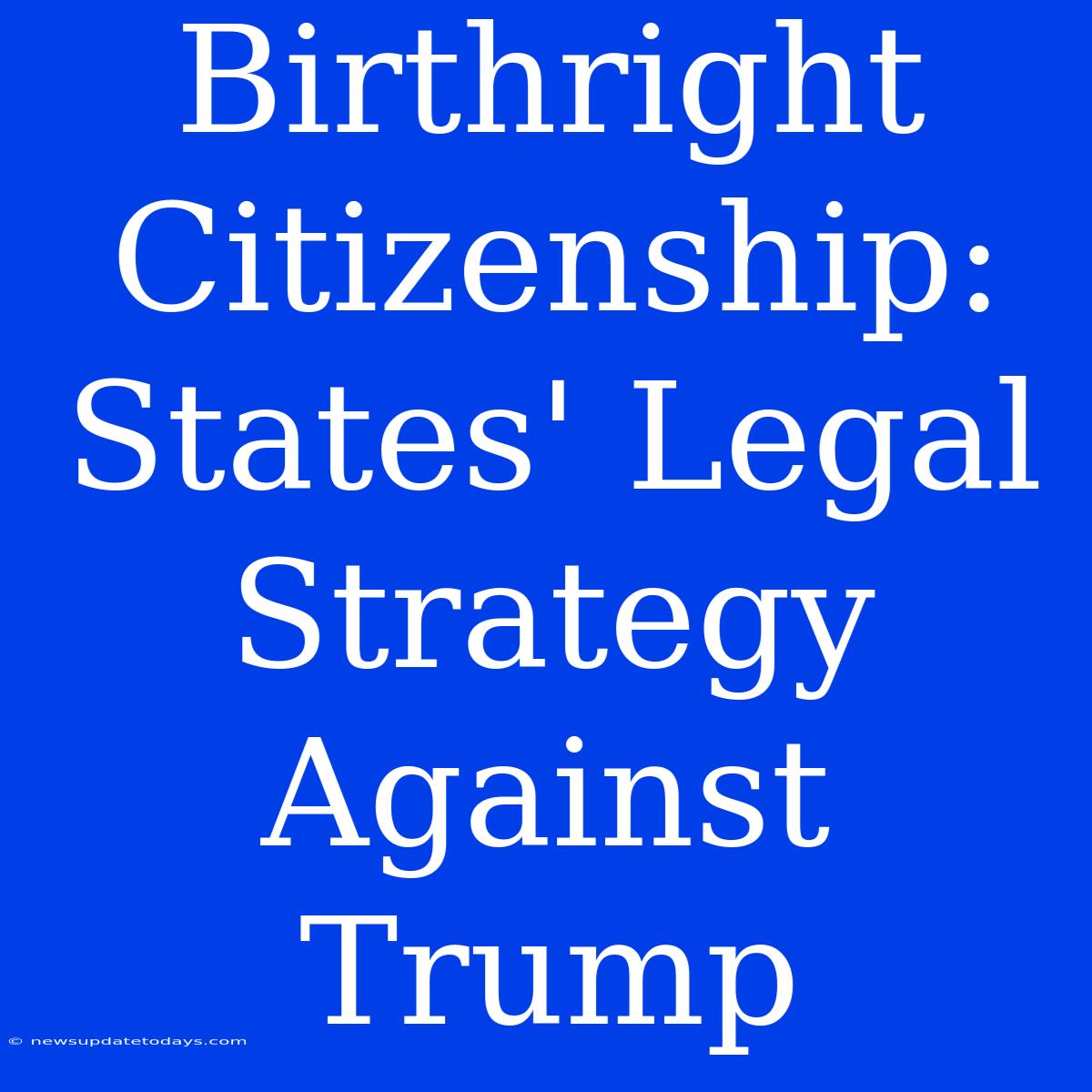Birthright Citizenship: States' Legal Strategy Against Trump's Challenge
The debate surrounding birthright citizenship in the United States, enshrined in the 14th Amendment, has reignited with former President Trump's repeated assertions that he would end the practice. This has led to a significant legal battle, with several states adopting proactive legal strategies to defend this fundamental right. This article examines the states' legal approaches and the potential implications for the future of birthright citizenship.
Understanding the 14th Amendment and the Trump Administration's Stance
The 14th Amendment to the U.S. Constitution states: "All persons born or naturalized in the United States and subject to its jurisdiction, are citizens of the United States and of the State wherein they reside." This clause, often interpreted to guarantee birthright citizenship (jus soli), has been a cornerstone of American immigration policy.
However, the Trump administration challenged this interpretation, arguing that the phrase "subject to its jurisdiction" excludes children born to undocumented immigrants. This stance lacked legal precedence and faced considerable opposition from legal scholars and civil rights organizations.
States' Legal Countermeasures: A Proactive Defense
Facing the potential erosion of birthright citizenship, several states, primarily those with large immigrant populations, have taken proactive legal steps to protect it. Their strategies can be broadly categorized as follows:
1. Amicus Briefs in Support of Birthright Citizenship Cases:
Many states have filed amicus briefs (friend-of-the-court briefs) in lawsuits challenging actions or statements aimed at limiting birthright citizenship. These briefs emphasize the importance of the 14th Amendment, its historical context, and the potential negative impacts on their states if birthright citizenship were revoked. This strategy allows states to contribute their legal expertise and political weight to existing cases without directly initiating litigation.
2. Direct Legal Challenges and Preemptive Legislation:
Some states have gone further by initiating legal challenges against potential executive actions or passing state-level legislation explicitly affirming birthright citizenship within their borders. This proactive approach aims to create a strong legal precedent at the state level, strengthening the defense against any federal attempts to undermine the 14th Amendment.
3. Collaboration and Coalition Building:
States have collaborated and formed coalitions to share resources, legal strategies, and coordinate their efforts to defend birthright citizenship. This unified front presents a powerful force against any attempt to alter the long-standing interpretation of the 14th Amendment.
The Significance of States' Legal Strategies
The states' active legal defense of birthright citizenship holds significant implications. It reflects a strong belief in the principle of jus soli and its importance for maintaining social cohesion and economic growth. Furthermore, it showcases the federalist system's role in protecting individual rights against potential federal overreach. These actions could also influence future legal decisions and set a precedent for defending other fundamental rights.
Conclusion: An Ongoing Legal Battle
The legal fight surrounding birthright citizenship is far from over. The states' proactive legal strategies, encompassing amicus briefs, direct challenges, and coalition building, represent a significant effort to defend a cornerstone of American citizenship. The outcome of these legal battles will have lasting consequences for immigration policy and the interpretation of the 14th Amendment, shaping the future of birthright citizenship in the United States. Further court decisions and legislative developments will be crucial in determining the final outcome of this important legal debate.

